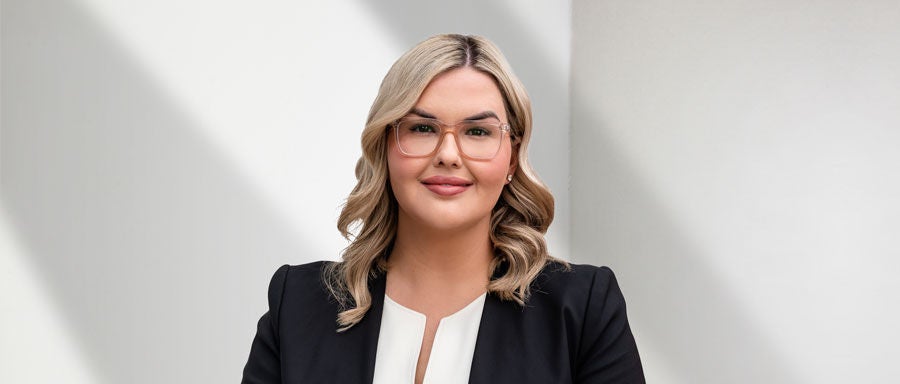In January 2017, Carol noticed an unexplained lump on her right eyelid and went to her doctor for a check-up. After examination her doctor assured her it was just a sty that would clear up in a few days.
However, the lump did not clear up and continued to bother Carol, so she returned to her general practitioner. This time she was diagnosed with blepharitis – an inflammation of the eyelash follicles – and prescribed an ointment to treat it. When that treatment didn’t work either, and the lump continued to flare up, Carol went back to the doctor on numerous occasions. Her doctor then prescribed treatment for dermatitis, but again, the lump did not respond to this treatment.
“Nothing seemed to get rid of it,” says Carol, who saw her doctor more than ten times about her irritated eyelid, between January 2017 and June 2019.
“But instead of referring me to someone who could investigate my symptoms properly, my doctor kept trying treatments that didn’t work.”
The impact of medical negligence
“It got to the stage where I demanded a referral to a specialist I had found because I couldn’t take it anymore,” says Carol.
“My doctor said it would take months to get an appointment but I persisted, and I’m glad I did. Within five minutes of seeing the specialist I had a biopsy that confirmed the worst.”
The lump on Carol’s eyelid was an advanced form of skin cancer, known as squamous cell carcinoma (SCC). Because of the delay in the diagnosis, the tumour had the opportunity to spread and become invasive, which resulted in significant surgery impacting her top and bottom eyelids.
What is Squamous Cell Carcinoma?
SCC is the second most common form of skin cancer. It can vary in appearance – taking the form of scaly red patches, open sores, wart-like skin, or raised growths – and it most commonly appears in sun-exposed areas of the body.
When caught early, most SCCs are curable, which is why early diagnosis is critical. In Carol’s case this opportunity was sadly missed due to the lack of proper investigation, timely referral and specialist review.
Carol’s life changed forever
Carol’s skin cancer had progressed so far that she needed surgery to remove 80 per cent of her upper eyelid, and two-thirds of her lower eyelid. A plastic surgeon was then required to reconstruct the skin surrounding her eye.
When Carol woke after surgery she couldn’t believe how much the cancer had spread. And she got an even bigger shock when her bandages were removed and she realised she would have permanent scarring, disfigurement to her face and difficulty opening and closing her right eye.
“This situation changed me forever,” says Carol who struggled to sleep, work and carry out many other activities after her surgery. She is now required to use eye drops several times a day and night to lubricate the eye. This makes her vision blurry and impacts most areas of her life.
“And on top of a slow and painful recovery, I looked completely different so I became really self-conscious and didn’t want to go out. When I eventually did, after about eight weeks once the swelling and bruising went down, I wore sunglasses everywhere, even inside, so I could hide behind them.”
[Photo description: The lump on the eyelid that Carol was presenting to her doctor for medical attention]
The importance of seeking a second opinion
Medical negligence lawyer at Maurice Blackburn, Kirsten Van Der Wal, says Carol’s case is unfortunately far too common. “Over the past few years we have seen an increase in the number of people receiving skin cancer diagnoses far too late, all of which could be avoided with proper medical treatment,” she says.
“Because basal cell carcinomas and squamous cell carcinomas are often located on the face, a delayed diagnosis can result in serious and disfiguring injuries. In the worst cases, it can result in the death of a patient.”
“It’s vital that people get their skin checked regularly by an appropriately qualified doctor. If they aren’t satisfied with the diagnosis, they should seek a second opinion, or referral to a specialist. Their life may very well depend on it,” she says.
Carol agrees and believes things could have been very different if she’d seen her specialist sooner. Carol urges people to “get a second opinion if you’re not happy with how you’re being treated. It might make all the difference. I learnt the hard way, so hopefully others will learn from what happened to me.”
Medical negligence: know your rights
When seeking compensation for medical negligence it’s important to get legal advice as soon as possible – because there are strict time limits that apply to bringing a claim.
If you have suffered an injury as a result of unreasonable medical treatment, or delayed diagnosis, you can contact Maurice Blackburn for a confidential and free discussion - we're here to help. We can talk to you about your situation and whether you may be entitled to compensation.
Speak to our expert lawyers
We take calls 24/7
We can help with medical negligence claims
Our team of expert medical negligence lawyers are here to help you understand your legal options and to achieve the best possible outcome for you.
/MBL_KirstenVanDerWal_2022-01-14_900x384px.jpg)

/brent-story.png)
/redland-hospital-bowel-cancer-screening-failures-thumbnail.jpg)
/breast-cancer-awareness-month-thumbnail.jpg)